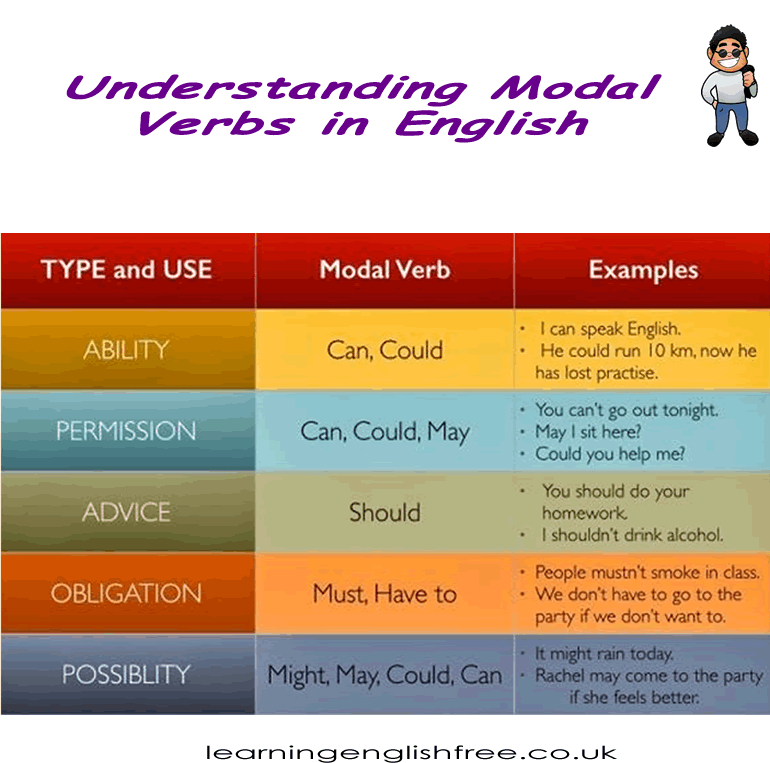
Modal Verbs: Types, Uses, and Practical Examples
Modal verbs are essential components of English grammar, adding nuance and depth to statements about ability, permission, advice, obligation, and possibility. This lesson breaks down the types and uses of modal verbs, providing clear examples for each category. Understanding modal verbs is crucial in expressing yourself accurately and effectively in English.
Lesson Content with Types, Uses, and Examples:
1. Ability (Can, Could):
- Use: To express someone's skill or capacity to do something.
- Example: "He could run 10 km, but now he has lost practice."
- Example: "I can speak English."
2. Permission (Can, Could, May):
- Use: To ask for or give permission.
- Example: "May I sit here?"
- Example: "You can't go out tonight."
3. Advice (Should):
- Use: To suggest what is appropriate or recommend an action.
- Example: "You should do your homework."
- Example: "I shouldn't drink alcohol."
4. Obligation (Must, Have to):
- Use: To express a necessity or requirement.
- Example: "People mustn't smoke in class."
- Example: "We don't have to go to the party if we don't want to."
5. Possibility (Might, May, Could, Can):
- Use: To indicate that something is possible.
- Example: "It might rain today."
- Example: "Rachel may come to the party if she feels better."
Additional Examples:
- Asking for a Favor (Could, Can): "Could you help me?"
- Giving Permission (Can, May): "You may use my phone if you need to call."
- Expressing No Obligation (Don't have to): "You don't have to finish it today if you're busy."
Enhancing Language Skills with Modal Verbs
This lesson on modal verbs provides you with essential tools to communicate abilities, ask for permission, give advice, express obligations, and discuss possibilities. By using modal verbs appropriately, you can make your English more precise and expressive.
